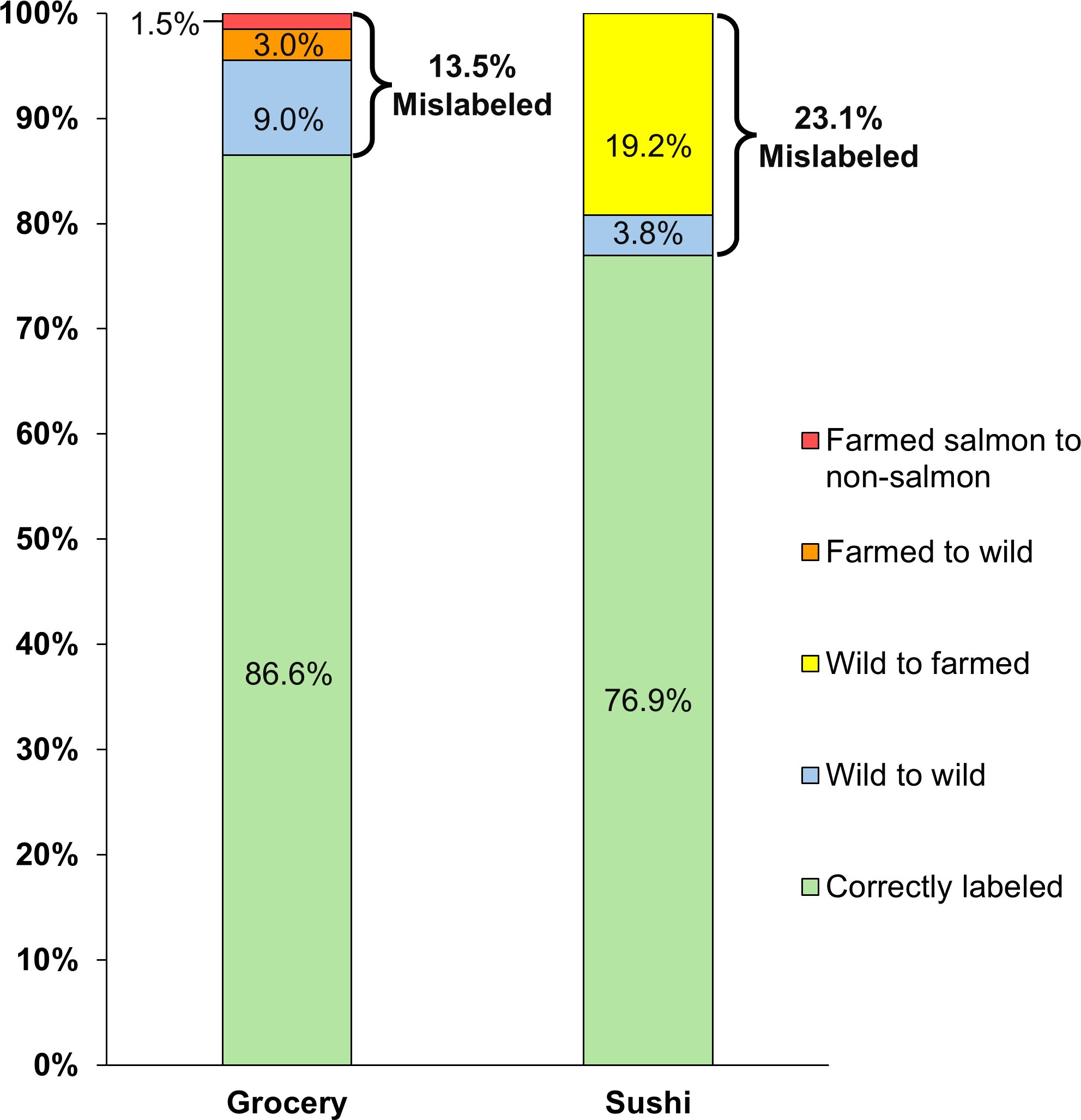
![Salmon mislabeling rates in grocery stores vs. sushi restaurants in Seattle, WA. Mislabeling rates identified by DNA sequencing are displayed (percent per category) as stacked bars. Percent per stack was calculated as follows = [(total mislabeled samples in a category)/(total samples of all categories)]*100%. Correctly labeled samples are also shown. Credit: Garcia et al., 2024, PLOS ONE, CC-BY 4.0 (creativecommons.org/licenses/by/4.0/) Salmon frequently mislabeled in Seattle grocery stores and sushi restaurants](https://skynews.icu/wp-content/uploads/2024/11/Grocery-stores-are-more-reliable-than-sushi-restaurants-in-labeling.jpg)
In a study of salmon samples from Seattle, Washington, grocery stores and sushi restaurants, DNA analysis revealed that 18% were mislabeled. Tracie Delgado and colleagues at Seattle Pacific University, WA, U.S., present these findings in the open-access journal PLOS ONE on November 6, 2024.
Washington State is one of the top suppliers of wild salmon eaten in the United States. The price of salmon depends on the species and whether it is farmed or wild caught. Prior studies have revealed frequent mislabeling of salmon in Washington markets and restaurants. In 2013, the state made it illegal to mislabel salmon, citing negative effects for customers, fishers, distributors, vendors, and ecosystems.
To help illuminate the impact of that legislation, Delgado and colleagues collected and analyzed salmon samples from 67 grocery stores and 52 sushi restaurants across Seattle from fall of 2022 through fall of 2023.
DNA analysis revealed that 18% of all 119 fish were mislabeled. Mislabeling farmed salmon as wild occurred for 32.3% of the restaurant samples and none of the grocery samples. The mislabeling of one wild-caught species as another occurred for 38.7% of the restaurant samples and 11.1% of the grocery samples.
Financial analysis revealed that mislabeling at sushi restaurants was at the expense of the customer, while mislabeling at stores had no significant effect. The researchers note that it is unknown where along the supply chain mislabeling tends to occur, but that it is unlikely at the point of harvest.
A prior study found a 20% rate of mislabeling in Washington between 2009 and 2011, and a 2% rate was observed in Seattle in 2012, soon after a nearby major distributor was sentenced to jail for fraudulently mislabeling salmon.
The new rates cannot be directly compared to the old, given different study designs and other underlying factors. However, as most samples in the new study were collected when salmon were in season, the researchers expressed surprise at the high rate of mislabeling they found.
On the basis of the findings, the researchers call for continued development and enforcement of legislation against salmon fraud.
Tracie Delgado adds, “Despite recent legislation that makes mislabeling of salmon illegal, salmon mislabeling fraud is still a problem in Seattle. We found Seattle sushi restaurants are far more likely to give you farmed salmon in place of vendor-claimed wild salmon.
“Failure to properly label wild salmon is a serious problem because it prevents accurate tracking of supply chains and therefore makes it more difficult to sustain and conserve wild salmon. It’s important to continue to develop and enforce legislation that requires accurate seafood labeling, from fisher to plate, and educate the public on how commercial salmon fraud impacts wild salmon conservation.”
More information:
Fishy business in Seattle: Salmon mislabeling fraud in sushi restaurants vs grocery stores, PLOS ONE (2024). DOI: 10.1371/journal.pone.0311522
Provided by
Public Library of Science
Citation:
Grocery stores are more reliable than sushi restaurants in labeling salmon properly, Seattle study finds (2024, November 6)
retrieved 6 November 2024
from https://phys.org/news/2024-11-grocery-reliable-sushi-restaurants-salmon.html
This document is subject to copyright. Apart from any fair dealing for the purpose of private study or research, no
part may be reproduced without the written permission. The content is provided for information purposes only.